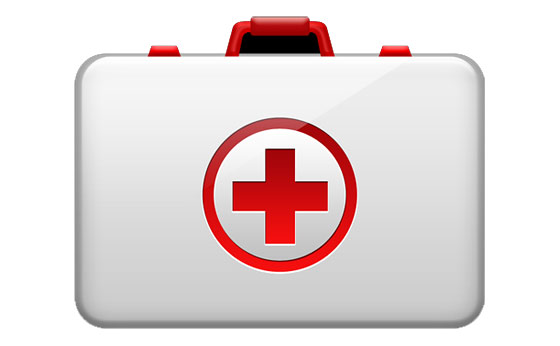
Dealing with medical emergencies is never fun. It can be scary and overwhelming. Where you are when the emergency happens will often dictate how you handle it. Understanding how to handle the situation before the emergency happens is always a great first step. Your confidence in dealing with both minor and major emergencies will reassure the injured person and help you perform the required tasks much better, so don’t panic. Seriously though, that never helps.

Some general steps to avoid hysteria:
-
Take a deep breath!
-
Count to 10 and tell yourself you CAN handle this! Positive self-talk really does help.
-
Check your surroundings: Are you in any immediate danger? You can’t help anyone if you get hurt too. Is the injured person in any immediate danger? Is there more than one injured person? Are there any other people who can help?
Look at the situation as a whole:
-
What is the most immediate threat to the person’s health? The most obvious problem is not always the most serious.
-
If the person is conscious, you need permission to help them. Introduce yourself and mention your training, you’re not bragging, you’re letting them know you’re there to help and that you’re qualified.
-
Ask questions—Where do you hurt? Do you have any allergies? Are you currently taking any medications? What is your current medical history (diabetes, heart attack, etc.) When did you last eat or drink something? What were you doing before the injury?
-
Treat the most life-threatening problems, like bleeding or shock, first.
-
Do a head-to-toe check—make it a visual check though, touching can creep people out a bit.
Check for broken bones
-
If you suspect a spinal injury DO NOT move the injured person.
-
Make sure someone has called emergency services!
The best way to deal with a medical emergency is to prepare for it! Get yourself emergency-ready. Enroll in a CPR and/or first aid training course and get the knowledge and preparedness you need. That way, in the event of an emergency, you won’t panic and frantically dial 911. You CAN do more to help. Be prepared and stay calm.

